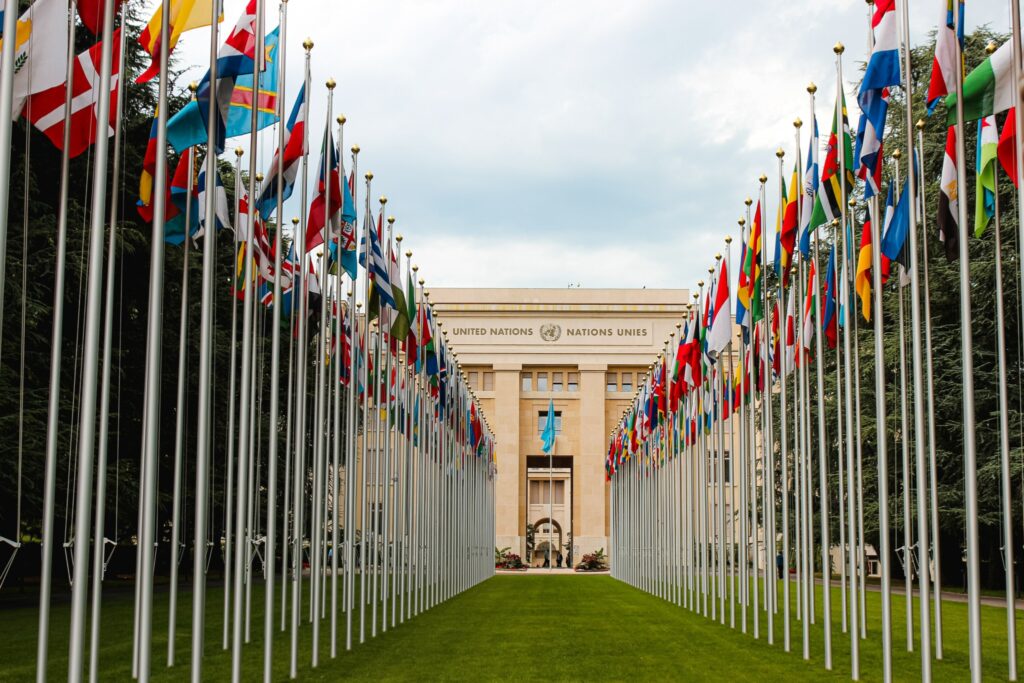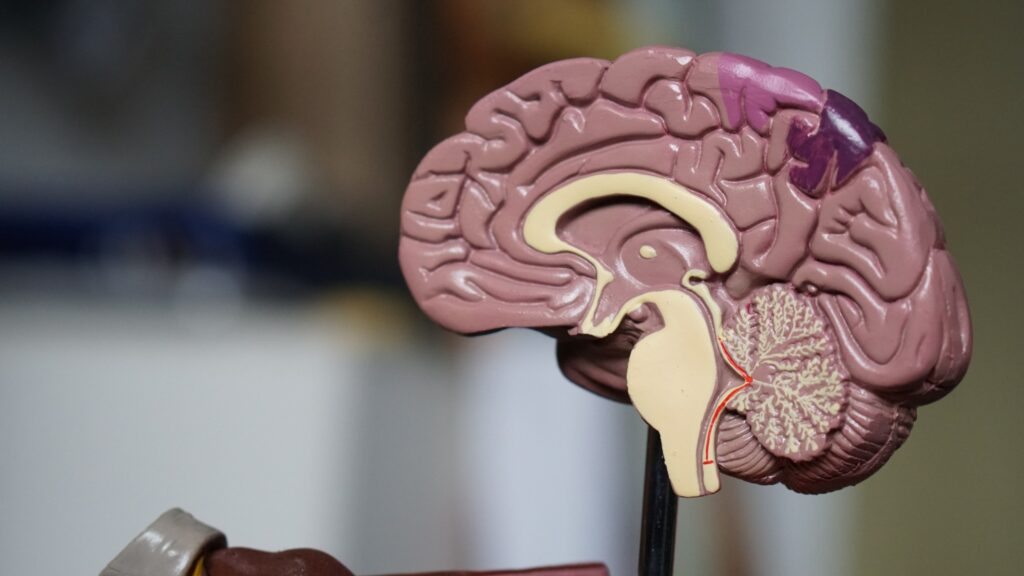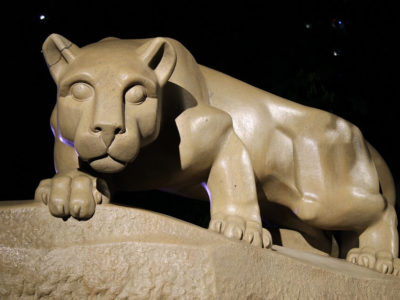Do you remember having to choose classes in high school? Your counselor made you spend four years only taking classes they wanted you to take, and you only got to pick one or two courses for yourself senior year. At Vassar, that all changed. Now you can choose from nearly limitless options. Ceramics? Sure! Evolutionary biology? Why not? Whether you want to take introductory classes in popular subjects or simply taught by popular professors, some of Vassar’s class offerings just always seem to fill up fast.
Read on for the top 10 most popular classes at Vassar College:
10. PSYC 253: Individual Differences and Personality

200-level courses often draw fewer students than their more basic 100-level equivalents, but not PSYC 253. For one thing, psychology stands out as one of the most popular majors at Vassar. In the age of astrology and viral personality tests like Myers-Briggs and enneagrams, more and more college students want to understand their own personalities. Since our personalities define our entire lives, learning more about them gives us the ability to live better. That means PSYC 253, which gets students right into the actual science of personality, will always fill up right away.
“Everybody can really relate to psychology, and they get to learn about themselves,” Vassar College senior Claire Peikes said.
In addition, PSYC 253 can help out with situations students encounter in their daily lives. Do you want to know why your roommate gets so angry when you ask them to clean up? Do you want to figure out the best way to beg your parents for more money? Do you hunger to know whether that cute girl in the library was really flirting with you? Maybe the psychology department doesn’t have all the answers – but at least this course can give you some context for these questions.
9. CLCS 101: Civilization in Question

CLCS 101 exemplifies Vassar’s focus on interdisciplinary courses. Three professors who come from three separate departments teach this course, which reimagines the typical view of the Western philosophical canon to incorporate different traditions of thought throughout Western civilization. In plain English, this course appeals to a lot of students for many different reasons. During fall of 2019, professors even taught this course in the Vogelstein movie theater because so many students chose to enroll in the class.
8. SOCI 151: Introduction to Sociology

Every student needs to pick four introductory courses during their first semester; thus, a lot of those courses ended up on this list. Every semester, many students enroll in SOCI 151: Introduction to Sociology. Even if you don’t have the faintest clue about what you want to major in, SOCI 151 will teach you a lot of things that you’ll remember for your entire life. If you tried SOCI 151 during your first year at Vassar, you certainly picked a popular course.
“It’s one of those classes that has different topics and different professors teaching it every semester, so you can retake it and get something different out of it every time,” Vassar College senior Arlo Quinene said.
Many Vassar students pick sociology as their major because the department covers so many topics. You can study unfamiliar societies and faraway places, dipping your toes into an ocean of new knowledge; or you can “keep your feet closer to home” and learn about everyday problems we face here in the United States. Either way, you’ll review a broad selection of readings from the philosophical and historical canon. You don’t need to want to become a sociologist in order to take a course like SOCI 151.
7. ANTH/SOCI 247: Modern Social Theory: Classical Traditions

This one might seem surprising. Would you usually think a 200-level course could draw such huge numbers of registrations? Students consistently struggle to get into popular professor Diane Harriman’s cross-listed course. Professor Harriman is known for her interesting teaching methods and surprising course materials, which explains why ANTH/SOCI 247 attracts so many students.
“It was a seminar that was really competitive because it was a crossover between sociology and anthropology, which are two really big majors at Vassar,” Vassar College senior Arlo Quinene said. “It was a struggle at first, I think, because one of the books we read was Lisa Low’s Intimacy of the Four Continents, which was one of the most important books I’ve ever read.”
This course counts as a 200-level, so first-year students typically don’t take it. Still, it attracts upper-class students in a variety of ways. The class covers material that carries broad appeal, despite its difficulty. Any course that has Marx on the reading list will surely draw at least a few socialist-leaning Vassar students. Even though the high-level material of ANTH/SOCI 247 seems intimidating, students find that they carry the books they read in the course with them for the rest of their lives. Liberal arts colleges always strive to deliver just that kind of experience.
6. ECON 102: Introduction to Economics

Whether you dream of shaping economic policy or you simply want to know what the words “consumer price index” mean, you’ll probably end up taking ECON 102 during your time at Vassar. Most of the professors in the economics department end up teaching a section, which means that you could get a very different experience depending on who you take this class from. Also, it doesn’t hurt that this course fills the quantitative requirement – and for history and political science majors, it can even relate to their interests.
The course covers content that will help students in a variety of ways. The media loves to throw around terms like gross domestic product, inflation and so on. But without a solid foundation in economics, many people struggle to understand this discussion. If you take ECON 102, you’ll gain the ability to keep up with what those reporters on TV say about the economy – and to know what seems fishy. Even if students want to major in something completely different, they can always benefit from learning a little economics.
5. POLI 160: International Politics

Speaking of political science, one of the department’s four introductory-level courses made the list. Perhaps this doesn’t surprise you. Vassar draws political science majors like nails to a magnet. Every student who majors in political science needs to take at least one or two introductory courses. Of the bunch, POLI 160 appeals to the most students; it covers new and unfamiliar political systems from around the world, rather than focusing on familiar topics like American politics.
“Everyone at Vassar is super politically minded. We had American Politics in high school,” Vassar College senior Claire Peikes said. “Of the four intro courses, International Politics is the most sought after.”
Lots of Vassar students get interested in politics, and they especially love international politics. Casual news watchers might have a lot of unanswered questions about how the world works. For instance, how does the European Union work? How do the communist countries choose their leaders? Why do other democracies hold such different elections than the United States? Therefore, for naturally curious Vassar students who strive to answer questions like these, POLI 160 holds a lot of appeal.
4. ASTR 105: Stars, Galaxies, and Cosmology

Appealing to a broad cross-section of the student body, from aspiring astrophysicists to those who simply think ASTR stands for “astrology,” this introductory course in the astronomy department fills up very quickly every semester. Like ECON 105, it wields a secret weapon for attracting humanities majors, namely that it counts towards the quantitative requirement. However, ASTR 105 also draws students who don’t want too many challenges. Those who seek a softer introduction to Vassar or just want some fresh night air often feel drawn to take ASTR 105.
“The graded work is honestly not terribly difficult,” Vassar College senior Layna Putterman said. “People find it interesting, and it fulfills the requirement.”
“I’ve heard that is the easiest QA you can get your hands on,” Vassar College sophomore Ki’tsai Zangpo said. “It’s lower on the advanced math end of the spectrum.”
However, putting requirements aside, astronomy also fascinates many Vassar students. Maria Mitchell, a professor at Vassar, became the first prominent female astronomer in America, and her legacy resounds in the astronomy program at Vassar. Even if most students don’t see Vassar as a “STEM school,” plenty of them still take classes in the astronomy department. So, if you find yourself drawn to the faraway observatory, know that you walk on a well-trodden path at Vassar by taking ASTR 105.
3. BIOL 107: Energy Flow in Biological Systems

The introductory course in the biology department only offers one section per semester, so students shouldn’t feel surprised that it fills up very quickly. Many people want to become doctors during this time of economic uncertainty. As long as people keep getting sick, the medical field can promise a sure paycheck. Maybe this explains why students find themselves waitlisted for BIOL 107. Also, the class gates off many more advanced biology courses, so taking it early gives you more interesting choices in the future.
“Anything on the pre-med track is fairly popular,” Vassar College sophomore Ki’tsai Zangpo said. “Everybody wants to be a doctor and get filthy rich.”
“There are so many people who couldn’t get in and just had to wait until the next semester,” Vassar College senior Claire Peikes said. “It was nice to be able to say, I’m done with intro bio. I can try other classes.”
Introductory courses like BIOL 107 may not seem like the most interesting classes at Vassar, but students who take them still care about what they study. Vassar imposes only a few requirements, so everyone in a section of BIOL 107 wants to be there. Maybe some students only take this course because it paves the way to medical school, but that still represents a free choice on their part. The students at Vassar really engage with the course material, even in their introductory courses.
2. PSYC 105: Introduction to Psychological Science

Another class from the psychology department makes the list, which means that one of the most popular departments at Vassar gets two entries in the top 10. The college offers many sections of this course so that students can easily get in. Still, this just shows its popularity. Whether you want to become a therapist or you simply want to know what actual scientists think of the Myers-Briggs personality test, you’ll find PSYC 105 very interesting.
You can get a spot in PSYC 105 whenever you want to. However, if you want a section from a specific professor, you’ll need a good draw number. Even though each section technically covers similar material, each professor can put their own spin on the class. Some professors, like Randy Cornelius, find their sections packed full every semester. In theory, you could even take PSYC 105 multiple times with different professors and get something different out of the course each time.
1. ART 105: Introduction to the History of Art and Architecture

The most popular course at Vassar falls under the art department. Every year, students herd into the Loeb for an intensive, all-encompassing survey of the human quest to create beauty. Whether you want to learn about ancient Chinese pottery or impressionist masterpieces, ART 105 offers something for you. The hands-on approach in this class keeps students engaged and excited to learn. No STEM class can compete in popularity with ART 105.
“I don’t think STEM classes usually get hyped up in the same way as humanities classes,” Vassar College junior Micaela Primer said. “Some Professors get hyped up, but in a STEM major it’s more clear cut as to which classes you will be taking.”
“It’s just a really cool way of getting to know art all throughout history and the world,” Vassar College senior Arlo Quinene said.
Making the class even more interesting, students get to engage directly with the art they learn about. Every Friday, the class tours the Loeb’s art gallery, which hosts an enormous art collection. Those who take ART 105 can see the best pieces in the gallery. Perhaps the spiritual feeling of looking at works by long-dead masters attracts students, or maybe the appeal comes from the fact that spending time in an art museum feels like getting class credit for goofing off. Either way, ART 105 never fails to draw a crowd.



















